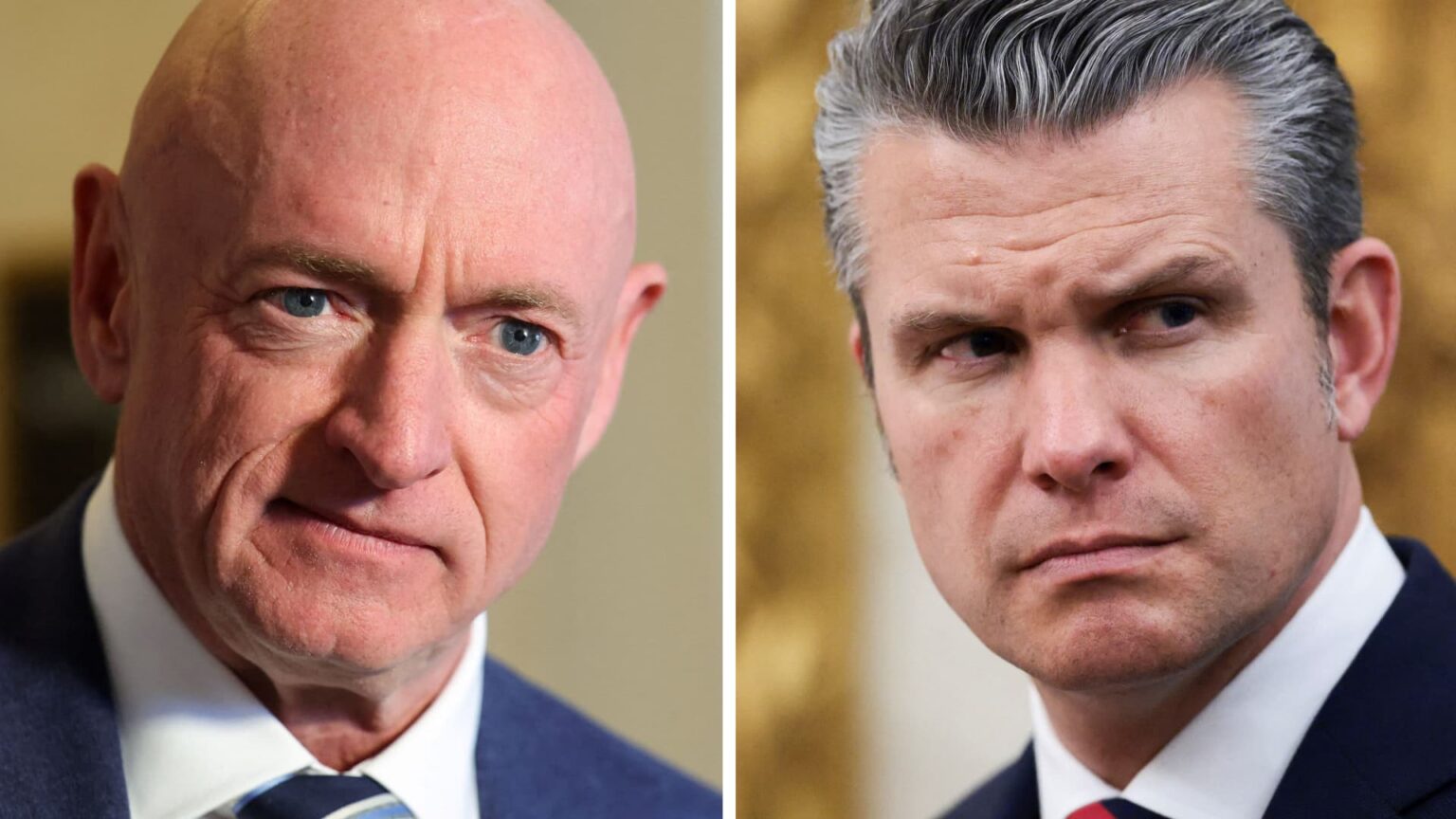On November 18, 2025, U.S. Senator Mark Kelly of Arizona found himself at the center of a political firestorm following a press conference calling for the release of the Epstein files on Capitol Hill. The controversy escalated when the FBI expressed interest in interviewing Kelly and five other congressional Democrats regarding their involvement in a video that urged military personnel to refuse illegal orders. High-profile reactions from President Donald Trump and Defense Secretary Pete Hegseth have generated a fierce debate over the implications of this situation for Congress and the military.
The video featuring Senator Kelly along with other lawmakers has sparked accusations of seditious behavior, leading to a response from the Pentagon and a review by the FBI’s Counterterrorism Division. In a politically charged environment, the implications of this incident have raised questions about the boundaries of free speech and the appropriate response to military orders. The escalating tensions have compelled the lawmakers involved to publicly denounce the allegations, framing them as intimidation tactics aimed at silencing dissent.
To further delve into this unfolding narrative, the following sections outline the key aspects contributing to the current atmosphere surrounding these allegations and the broader implications for military conduct and civil liberties.
| Article Subheadings |
|---|
| 1) Background on the Video and its Purpose |
| 2) Responses from Political Leaders |
| 3) The Role of the FBI and Pentagon |
| 4) Implications for Military Conduct |
| 5) The Ongoing Debate on Civil Liberties |
Background on the Video and its Purpose
The controversial video that prompted national attention featured Senator Mark Kelly and other congressional Democrats, including Elissa Slotkin, Jason Crow, Maggie Goodlander, Chris Deluzio, and Chrissy Houlahan. The lawmakers called on members of the U.S. military to refuse unlawful orders, framing their statement within the context of their constitutional responsibilities. Released amid rising tensions regarding military engagement in various actions, the video aimed to promote adherence to lawful orders and to empower service members to resist questionable directives.
The video gained further significance as it coincided with an increased scrutiny of military actions under President Trump, including airstrikes conducted without Congressional authorization. It appealed directly to military personnel and the intelligence community, urging them to uphold their oaths to the Constitution. In a tweet accompanying the video, Slotkin highlighted the need to speak to those in the military and the intelligence community, stating, “The American people need you to stand up for our laws and our Constitution. Don’t give up the ship.”
Responses from Political Leaders
Responses to the video and the subsequent FBI inquiries have been swift and polarized. Following Trump’s denunciation of the lawmakers as “traitors,” Senator Elissa Slotkin described the FBI’s investigation as an intolerable form of intimidation. In her statements, she asserted, “The President directing the FBI to target us is exactly why we made this video in the first place,” criticizing the weaponization of federal agencies against political adversaries.
Collectively, the lawmakers impacted by the FBI’s inquiry issued a statement condemning Trump’s actions and characterizing the investigation as political harassment. They emphasized that their commitment to their duties and the Constitution would not be undermined by intimidation tactics. The statement read, “No amount of intimidation or harassment will ever stop us from doing our jobs and honoring our Constitution.” Their resolve reflects a vigorous commitment to civil liberties, asserting that they must stand for democratic principles despite any political backlash.
The Role of the FBI and Pentagon
The FBI’s involvement represents a significant development in the ongoing political conflict. The agency reached out to the House and Senate Sergeants at Arms, signaling a formal inquiry into the video and its implications. This move has further fueled concerns over the politicization of law enforcement, particularly regarding how perceptions of legality and order are shaped in political discourse.
Additionally, the Pentagon’s simultaneous investigation into Senator Kelly for potential violations of the Uniform Code of Military Justice has drawn attention to the potential consequences for his military career. As a retired Navy captain, Kelly faces the possibility of being recalled to active duty and even facing a court-martial. The allegations hinge on guiding military personnel towards illegal acts, which raises broader questions about the responsibilities of military leaders in a democratic society.


